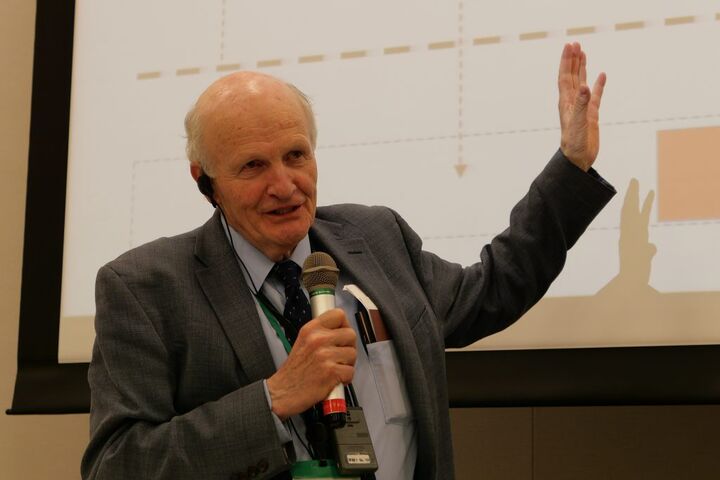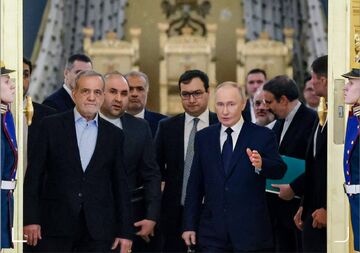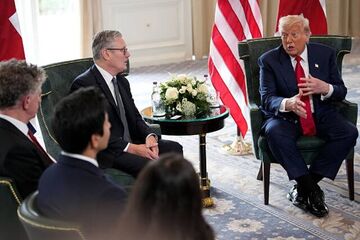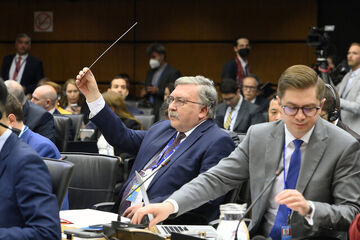TEHRAN(Bazaar) – Professor Frank N. von Hippel, former assistant director for national security in the White House Office of Science and Technology, says the far more urgent issue at the moment, however, is to save the JCPOA.
Following is the text of the Bazaar interview with Professor Frank N. von Hippel.
Bazaar: A draft anti-Iran resolution backed by Europe and the United States has been sent to the International Atomic Energy Agency's Board of Governors, Reuters reported. Do you think such a resolution will be issued?
Frank N. von Hippel: I don’t know but it might be. According to the report, it just urges Iran to resolve the remaining questions about its pre-2003 nuclear program. Iran should. The far more urgent issue at the moment, however, is to save the JCPOA.
Bazaar: Some news sources, including Axios, have reported that the Biden government is unlikely to support the resolution because the dialogue with Iran is not closed. What is your assessment?
Frank N. von Hippel: I don’t know but I hope that the Biden Administration’s primary focus will be on saving the JCPOA.
Bazaar: Before the important meeting of the IAEA Board of Governors, Rafael Grossi, the director-general of the IAEA, paid a visit to Israel. Following the visit, Israel announced that it would defend itself in the event of a failed diplomacy with Iran and the failure of the IAEA to suspend Iran's nuclear program and that Tel Aviv was committed to halting Iran's nuclear program. What is your assessment of this trip and this Israeli statement?
Frank N. von Hippel: I can only guess the reason for Grossi’s trip. It could relate to the documents Israel has provided the IAEA that indicate that Iran had access to the IAEA’s internal safeguards documents before 2003.
Israel obviously fears that Iran will acquire nuclear weapons. There appears to be a continued split between the political leadership and Israel’s intelligence, however, as to whether the JCPOA has been and would be effective in reducing that threat with the political leadership continuing to oppose the revival of the JCPOA. This is a continuation of the destructive role that Prime Minister Netanyahu played, including (he said) persuading President Trump to take the US out of the JCPOA.
Bazaar: Given the current situation, some experts believe that the best way out of the current situation is a temporary agreement for reviving the JCPOA. What is your assessment?
Frank N. von Hippel: If achieving compliance for compliance and a full return to the JCPOA is impossible at this time, I would support an Interim Agreement such as the 2013 JPOA, which bought the necessary time to achieve the JCPOA in 2015.
Bazaar: The closer we get to the midterm congressional elections, the less American interest in a nuclear deal with Iran. Because even with a proper agreement, Biden will not be able to persuade the opposition inside that not to give concessions to Iran. What is your opinion on this?
Frank N. von Hippel: There is currently strong opposition within Congress to returning to the JCPOA. Also, the US is facing an internal political crisis that could become worse if the Republicans take control of the Congress in January 2023 (I hope not).
My understanding is that the return to the JCPOA has basically been agreed and that the new problem is Iran’s demand that the US also reverse Trump’s placing of Iran’s Revolution Guard Corp on the US list of Foreign Terrorist Organizations.
This is a purely symbolic matter driven by internal politics in both Teheran and Washington with no practical significance. Biden has apparently decided that it should be treated as a separate matter from the JCPOA. I hope Iran will agree so that both countries can quickly return to the JCPOA. Otherwise, the only option may be an interim agreement.
As always, I worry that the alternative to diplomacy is war, which no sane person should want.














نظر شما